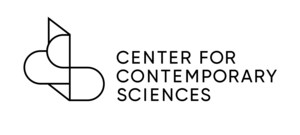Senate Committee Fails to Include the FDA Modernization Act of 2021 in a Key Legislative Package, which the Center for Contemporary Sciences Calls a "Step Against Medical Progress."
WASHINGTON, Sept. 28, 2022 /PRNewswire/ -- In a major upset, the U.S. Senate committee on Health, Education, Labor, and Pensions (HELP) agreed on a revised version of the Food and Drug Administration Safety and Landmark Advancements Act of 2022 or FDASLA (S. 4348) but, that strips from it all riders, including the key FDA Modernization Act of 2021 (S.2952).
To this end, the FDA Modernization Act of 2021 (S.2952/H.R.2565) amends the outmoded regulatory guidance at the FDA by broadening the options for drug developers seeking regulatory approvals to include modern and human-relevant testing methods, in lieu of less effective animal experimentation. In doing so, the FDA Modernization Act introduces much-needed improvement to the process of drug development. Such a change is expected to speed up the discovery process and lower the cost of life-saving medicine.
Of note, the existing drug development paradigm, established by statute in 1938 under the Federal Food, Drug, and Cosmetics Act (FFDCA), requires animal tests to be conducted in all new drug applications submitted for regulatory approvals, even though 90—95% of drugs that pass animal testing fail when tried in humans.
A growing number of stakeholders have voiced their support for the FDA Modernization Act of 2021 (H.R.2565 / S.2952). The se include influencers from the biotech industry, nonprofits, and academia. For instance, open letters were sent from biotech industry leaders and the Jane Goodall Institute and Vivodyne to the HELP committee in charge of negotiating the FDASLA in the Senate. That is in addition to the public support to the FDA Modernization Act from entities such as the BICO group and Emulate, Inc, committed to promoting 21st century alternative methods to animal testing. Like its counterpart in the U.S. House of Representatives, entitled the Food and Drug Amendments Act of 2022 (H.R. 7667) which passed in the House on June 8, 2022, the FDASLA is a major legislation that codifies the FDA user fee agreements in the Senate. Provisions included in the FDASLA organize the relationship between the FDA and healthcare providers. The user fee programs also represent sizable revenue streams for the agency and must be authorized annually by the U.S. Congress.
The passage of both the House (H.R. 7667) and Senate (S. 4348) versions of the legislative package bills that incorporate the FDA Modernization Act of 2021 would have been needed to advance it to the next step in the legislative process. The U.S. House of Representatives passed H.R. 7667 on June 8,2022 as indicated earlier. With this new development in the Senate concerning the FDASLA, the path is now obstructed for the inclusion of the FDA Modernization Act of 2021 in this year's Congress Conference report, a summary of agreements on legislation negotiated between the House and Senate. Such progress would have paved the way for the FDA Modernization Act of 2021 to be approved by the executive branch, ultimately enabling this legislation to become an enforceable law.
"This is disappointing news on the FDASLA and a hiccup in the efforts to make the FDA Modernization Act of 2021 the law of the land – which would have facilitated the development of safer and more efficacious drugs, at a faster pace and with reduced cost," said Dr. Zaher Nahle, Chief Science Officer at the Center for Contemporary Sciences (CCS). "It is essential that we double our efforts now to ensure that this bill advances as we continue to promote legislation that bolsters disruptive medical technologies."
Reacting to the news, Senators Rand Paul, R-Ky., and Cory Booker, D-N.J., who co-sponsored the original bill, reintroduced today a modified version of the FDA Modernization Act of 2021 to explore passing it in an upcoming Senate vote this week. CCS will continue to build support to help ensure its passage.
The next opportunity for advancing the FDA Modernization Act of 2021 is the year-end omnibus spending bill expected in December, where some negotiated legislation can be Introduced.
Center for Contemporary Sciences (CCS) is pioneering a paradigm shift towards innovative, evidence-based research methods that are based on human biology. We champion technologies that are better for humans and that replace animal testing.
SOURCE Center for Contemporary Sciences

WANT YOUR COMPANY'S NEWS FEATURED ON PRNEWSWIRE.COM?
Newsrooms &
Influencers
Digital Media
Outlets
Journalists
Opted In




Share this article